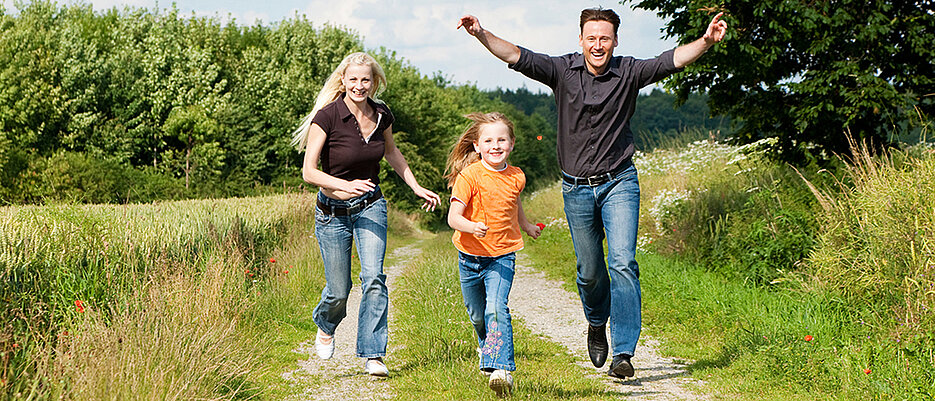Accurate self-assessment: what matters for children
07/12/2023Those who assess themselves and their abilities realistically get further in life than others. A study by the University of Würzburg now shows how children can learn precise self-assessment.

Apprenticeship or study at university? Should I do languages or science? What suits me best? How accurately young people answer these questions depends largely on one factor: their social environment. This has now been discovered by a research group in which the Julius-Maximilians-University Würzburg is involved. As part of the long-term study, researchers examined almost 600 families.
"Our research shows that children from disadvantaged families find it more difficult to realistically classify themselves and their abilities," says Prof. Fabian Kosse, holder of the Chair of Data Science in Business and Economics at the Faculty of Economics at the University of Würzburg. For many groundbreaking decisions in life, such as choosing a career, this is a decisive disadvantage. "People who assess their abilities more accurately are on average more successful, have higher incomes and even live healthier lives."
Marble game provides information on self-assessment ability
To measure the self-assessment of primary school-aged children, the researchers designed a novel game in which the children could win toys: The eight- to nine-year-olds' task was to roll marbles into holes. After a training round, they could determine the difficulty of the task themselves by choosing the size of the hole. A hit into a smaller hole resulted in a higher prize - but at the same time the difficulty increased and with it the probability of coming away empty-handed. "An analysis of the game results shows: children from families with a higher socio-economic status were more successful than children from families with a lower status," says Kosse.
With the right support, precise self-assessment can be learned
But how can this disadvantageous starting position be made up for? The randomized study investigated this in a second step. For this purpose, the researchers randomly divided children from educationally disadvantaged families into two groups: One was supported by a mentoring program for one year, the other received no support. "The mentoring program is called 'Balu and You'," Kosse explains. "In this program, young, committed people volunteer to sponsor a child. They take a few hours once a week, give him their attention and experience something together."
The result: after one year, the mentored group of pupils achieved significantly higher gains in the self-assessment game. "The mentoring even favored self-assessment to such an extent that after one year the children were at the same level as peers from socio-economically strong families," says Kosse. "We were able to show that it is crucial for the development of a realistic self-assessment to offer children varied, interactive activities, to play together, to do handicrafts, to make music or to do sports - and thus provide them with insightful experiences."
Positive effects still demonstrable years later
Kosse's research also shows how sustainable this interactive support is: Six years after the mentoring has ended, he and his co-researchers Armin Falk, Hannah Schildberg-Hörisch and Florian Zimmermann examine the children (now in their teens) again and ask them about their school performance. "We wanted to know: How do you assess your performance in the subjects of mathematics and German?" the researcher explains. "Then we compared this self-assessment with the actual grades, and thus with the assessment of teachers." The result: even now, children scored significantly better in their self-assessment if they came from families close to education or had gone through the mentoring program. "We were able to show a positive and long-term effect of early support on children," says Kosse. "In the coming years, we will continue to follow the participants and further explore how their self-assessment skills develop and how this affects important life decisions."
In addition to the University of Würzburg, the Bonn-based briq Institute for Behavior and Inequality and the University of Düsseldorf were also involved in the study. The study was financially supported by the German Research Foundation (DFG), the European Research Council, the Jacobs Foundation and the Benckiser Stiftung Zukunft.
Original publication
Self-assessment: The role of the social environment. Armin Falk, Fabian Kosse, Hannah Schildberg-Hörisch, Florian Zimmermann. Published in the Journal of Public Ecnonomics, DOI: 10.1016/j.jpubeco.2023.104908. https://www.sciencedirect.com/science/article/abs/pii/S0047272723000907
Contact
Prof. Dr. Fabian Kosse, Faculty of Economics, fabian.kosse@uni-wuerzburg.de






